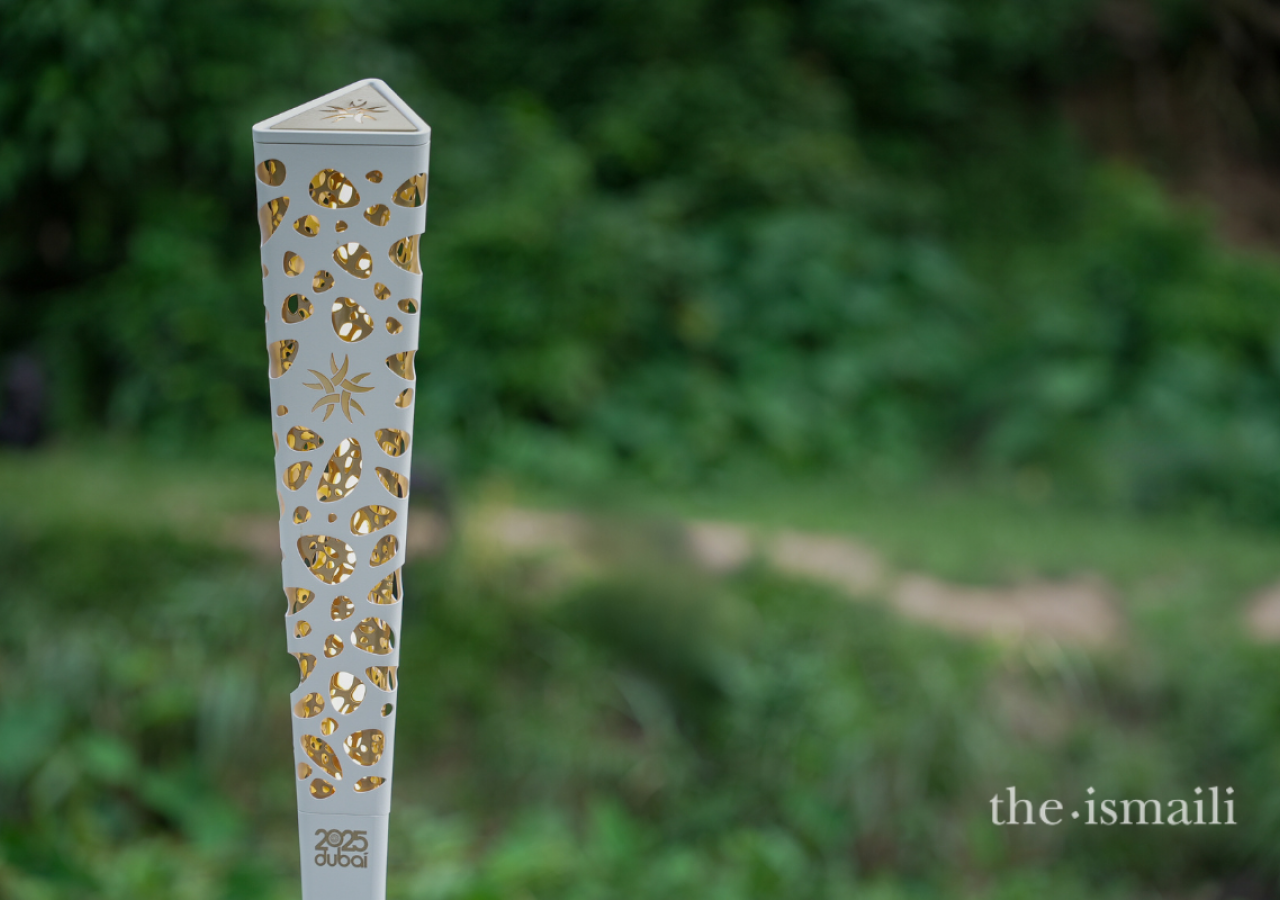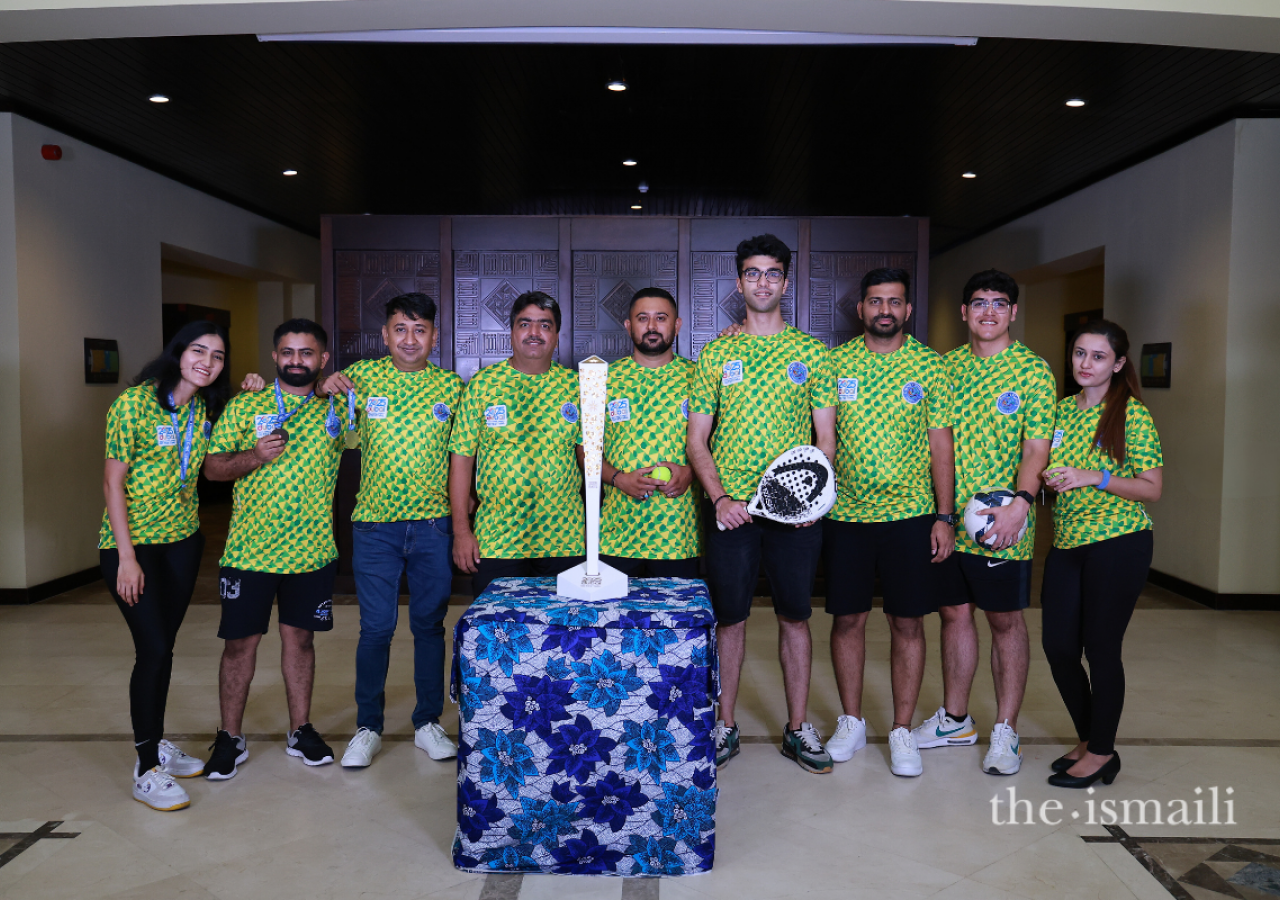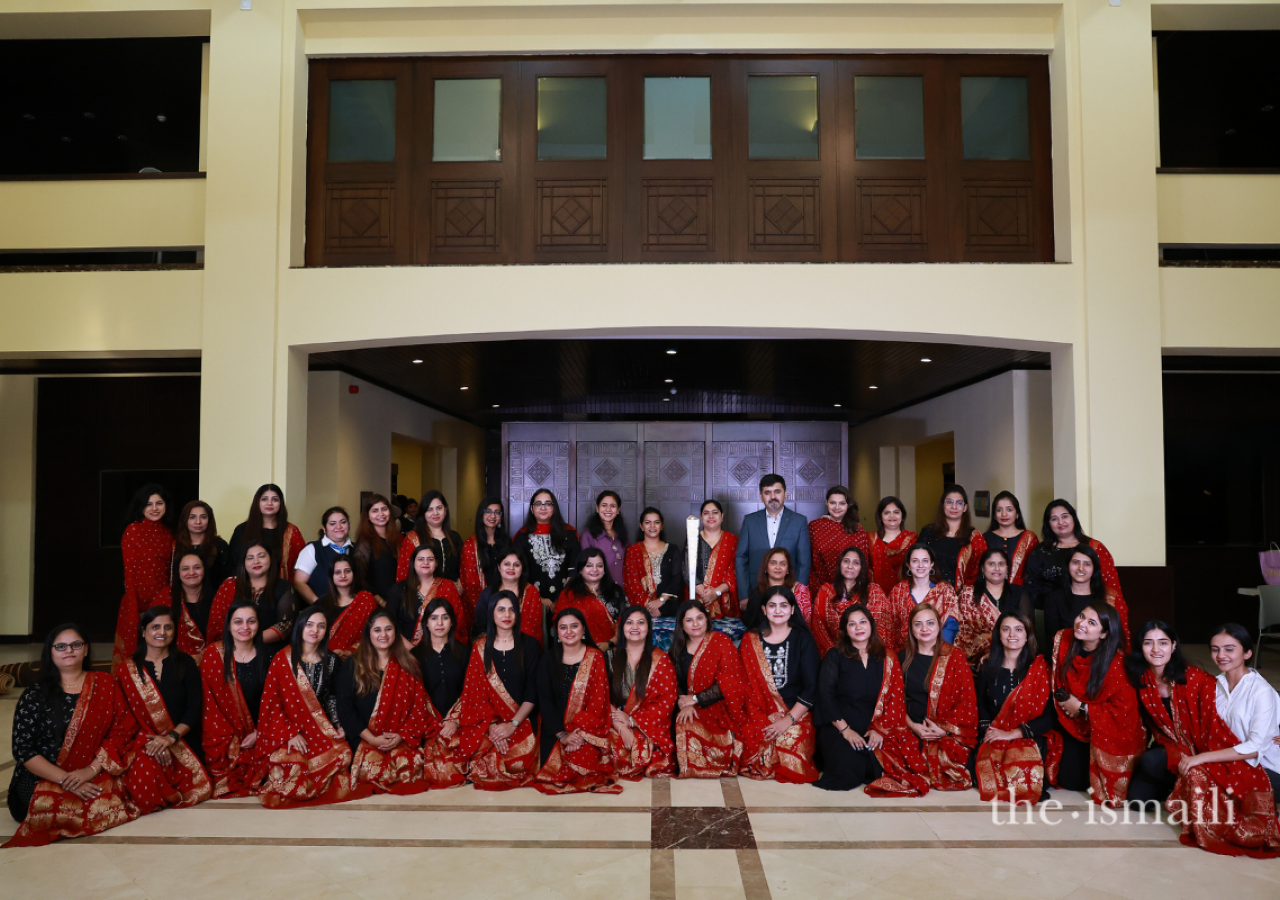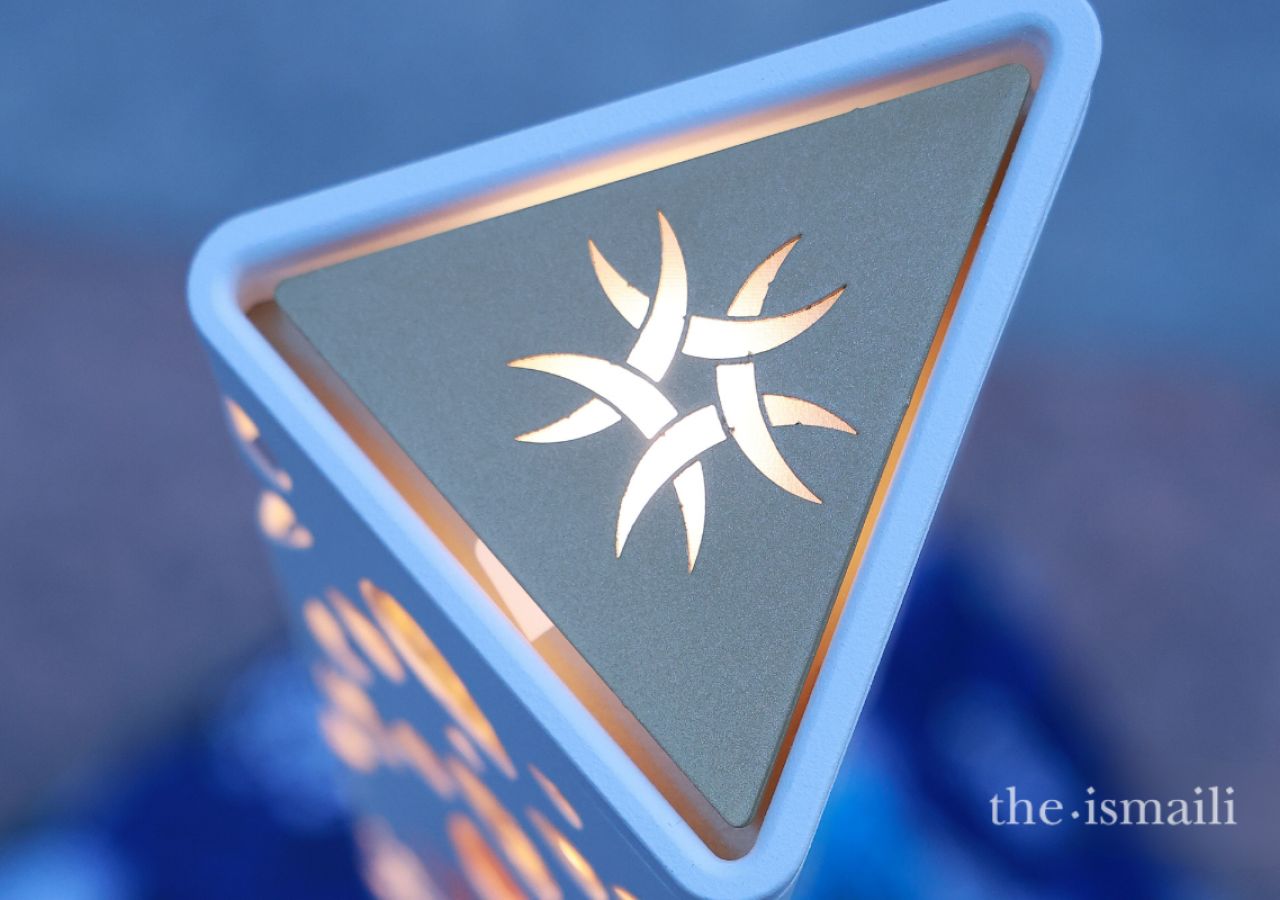In the capital, Kinshasa, more than 1800 members of the Jamat dressed up in the Congolese Pagne Liputa pattern tailored in unique ways, while more than 50 families took part in a cultural fashion show showcasing their designs. The chief guest, Honorable Vital Kamere, President of the National Assembly, also participated in the show along with his wife.
Hosted in conjunction with the country’s Salgirah celebrations, the event also featured a grand procession, an art mela, traditional dances, and shared meals.
The Faanoos was carried by Mukhi-Kamadia Sahebs, Ismaili Volunteers leaders, Global Encounters representatives, and finally by Amir Surani, President of the Ismaili Council for the DRC for a ceremonial lighting ceremony, after which fireworks exploded in the sky, lighting up the local area. Attendees celebrated with dandia raas and other dances well into the evening, with athletes and artists taking centre stage.
“I’m excited to be part of the Jubilee Games 2025,” said Zeeshan Barkat, who will represent the country in Badminton. “This is my chance to push my limits, compete against the best, and represent DRC on the global stage.”
Located in central Africa, the DRC is the second largest country in Africa, and its official language is French. With a population of 109 million, it is the most populous Francophone country in the world, having been a colony of Belgium for much of the 20th century.
The history of the Jamat in the DRC dates back to the early 1900s, when Ismailis migrated from South Asia to Kisangani, Goma, and the capital Kinshasa—which was then called Leopoldville—for trading and enterprise in the rapidly developing region.
During the first few decades of the 20th century, many Ismaili families made Congo their home, and by the late 1940s the community had a growing presence in Kinshasa. The Jamat found opportunities in the import of manufactured goods and the export of commodities, as well as in wholesale and retail trade.
The first Jamatkhana, located on Boulevard, was inaugurated in 1958, and marked the formal establishment of the community’s presence in the capital. The community remained committed to their home country through the heady days of the independence movement, and the tumultuous years that would follow. In the 1970s however, new government policies made it difficult for some residents of Indian descent to stay in the country, and many—including Ismailis—reluctantly left.
Despite political instability that stretched into the 1990s, the Jamat demonstrated resilience and solidarity, and continued to contribute positively to Congolese society, through initiatives in health, education, and economic empowerment.
The Ismaili Jamatkhana and Centre (IJKC) in Kinshasa opened in 2013, and has since become a vibrant hub for education, community service, and interfaith dialogue. Today, it stands as a beacon of cultural, spiritual, and civic engagement in the city.
A symbol of unity and celebration, the Faanoos will visit more than 250 cities before reaching Dubai for the Global Encounters Festival 2025.











